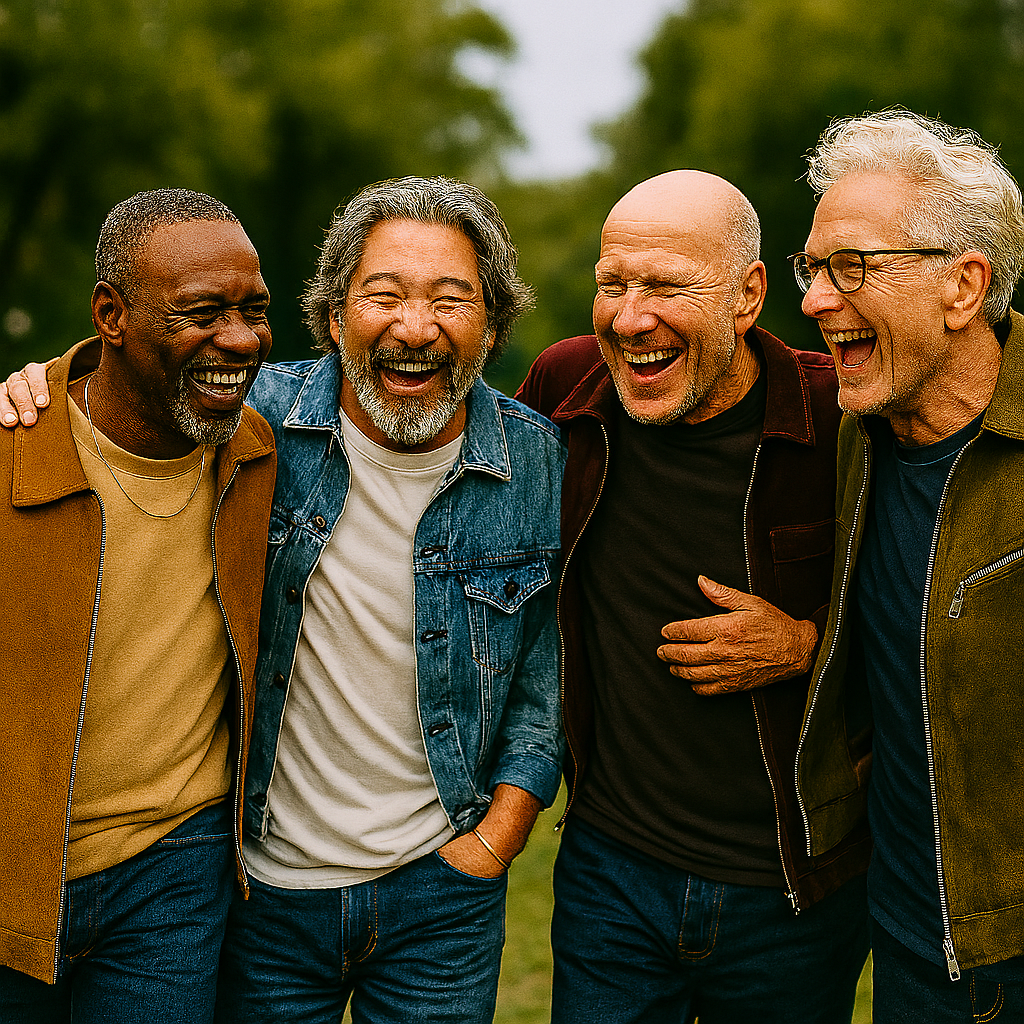Why Older Men Don’t Have Friends: A Quiet Crisis of Connection
Why Older Men Don’t Have Friends: A Quiet Crisis of Connection
In the tapestry of aging, one thread often unravels quietly: friendship. For many older men, the social circles that once felt effortless—teammates, coworkers, drinking buddies—begin to fade. What replaces them isn’t always solitude by choice, but isolation by default. While women tend to maintain and even deepen friendships as they age, men often find themselves without close companions. The reasons are complex, rooted in culture, gender norms, and shifting life stages. And the numbers tell a sobering story.
📉 The Friendship Recession Hits Men Hard

According to the Survey Center on American Life, the percentage of American men with six or more close friends has dropped by half since 1990. Even more alarming: the number of men reporting no close friends has increased fivefold. One in five single American men now say they have no close confidants. This isn’t just a personal issue—it’s a public health concern. Loneliness has been linked to increased risks of heart disease, depression, and cognitive decline.
Women’s friendship numbers have also declined, but not nearly as dramatically. While men and women report similar levels of loneliness, women are far more likely to reach out to a wider network for emotional support. In contrast, men tend to rely on their spouse—if they have one—as their primary or sole confidant. When that relationship ends through divorce or death, many men are left socially stranded.
Among older men, only 4% say they identify with traditionally “feminine” traits—such as emotional openness or nurturing—which may help explain why they struggle to maintain friendships that require vulnerability. Women, by contrast, are more likely to invest emotional labor into relationships, initiating contact, remembering birthdays, and offering support during crises. Men often wait for connection to happen organically. When it doesn’t, they may interpret it as rejection rather than a call to action.
🧒 From Locker Rooms to Living Rooms: What Changes Over Time?

In youth and early adulthood, male friendships often flourish in structured environments: school, sports, military service, or work. These settings offer built-in camaraderie, shared goals, and frequent contact. But as men age, those environments disappear. Retirement, relocation, and changing family dynamics disrupt the rhythms of connection.
Unlike women, who often maintain friendships through emotional sharing and regular communication, men are socialized to bond through activity. They fish, fix things, play golf. Vulnerability is rarely part of the equation. As psychologist Judy Chu notes, “We gender relationships as feminine. If that’s a feminine thing, it becomes a weakness or a liability if men admit to needing friendships.”
This cultural script means that many men never learn the skills required to sustain deep, emotionally rich friendships. Younger generations are starting to reject these norms, but among men over 65, the emotional vocabulary for friendship often remains underdeveloped.
👨👩👧👦 The Role of Marriage and Family

Marriage can be both a buffer and a barrier. Many older men rely heavily on their spouse for emotional support. In fact, when asked who their best friend is, many men say “my wife.” But women rarely say the same in return. They often have multiple close friends and maintain those relationships independently.
This dynamic creates a fragile dependency. If the marriage ends, men may find themselves without a support system. Widowers and divorced men are particularly vulnerable to isolation. Women, by contrast, tend to have more resilient social networks that persist beyond romantic relationships.
🏡 Geography and the Loss of “Third Places”

Another factor is the disappearance of “third places”—those informal gathering spots like coffee shops, community centers, and bowling alleys. Suburban sprawl and economic pressures have made these spaces less accessible. Between 2014 and 2019, the average time Americans spent with friends dropped from 6.5 hours per week to just four. For older men, who may no longer work or drive regularly, the barriers to socializing are even higher.
Solo dining has increased by 29% in the past two years, and while solitude can be peaceful, it’s not always chosen. Without intentional effort, isolation becomes the default.
💡 What Can Be Done?
The good news? Friendship is a skill—and it can be learned at any age. Here are ten ways older men can rebuild their social lives and reclaim connection:
-
Start Small
Reach out to one old friend. Send a text. Make a call. Suggest coffee. Reconnection doesn’t require a grand gesture—just a spark.
2. Join a Group
Whether it’s pickleball, a book club, or a volunteer team, shared activity can reignite connection. Look for groups that meet regularly and welcome newcomers.
3. Practice Vulnerability
It’s okay to say “I miss you” or “I’ve been feeling lonely.” These words open doors. Emotional intimacy is a form of courage, not weakness.
4. Redefine Masculinity
Connection isn’t soft—it’s strong. Challenge the old script that says men must be stoic. Model a new version of masculinity that includes empathy and openness.
5. Model Friendship for Younger Men
Show sons and grandsons that friendship matters, and that it’s never too late to invest in it. Your example can reshape generational norms.
6. Create Rituals
Weekly breakfasts, monthly hikes, annual road trips—rituals give friendships structure and longevity. They turn intention into tradition.
7. Use Technology Thoughtfully
You don’t need to be glued to a screen, but a simple text or video call can bridge distance. Apps like Meetup or Nextdoor can help find local events.
8. Be the Initiator
Don’t wait for others to reach out. Take the lead. Suggest a walk, a movie, a game night. Many men are waiting for someone else to make the first move.
9. Embrace Intergenerational Friendship
Younger men may be more emotionally fluent and eager for mentorship. These relationships can be mutually enriching and break down ageist assumptions.
10. Seek Support When Needed
If loneliness feels overwhelming, talk to a therapist, counselor, or support group. Friendship starts with self-awareness and healing.

🕊️ Reclaiming Connection
For older men, the path to friendship may feel unfamiliar—but it’s not closed. It requires intention, humility, and a willingness to rewrite old scripts. In a culture that often equates aging with decline, choosing connection is a radical act of vitality.
At PureAudacity, we believe aging should be audacious, eccentric, and full of heart. Friendship is part of that legacy. It’s not just about having someone to talk to—it’s about being seen, known, and valued. And that’s something every man deserves.





